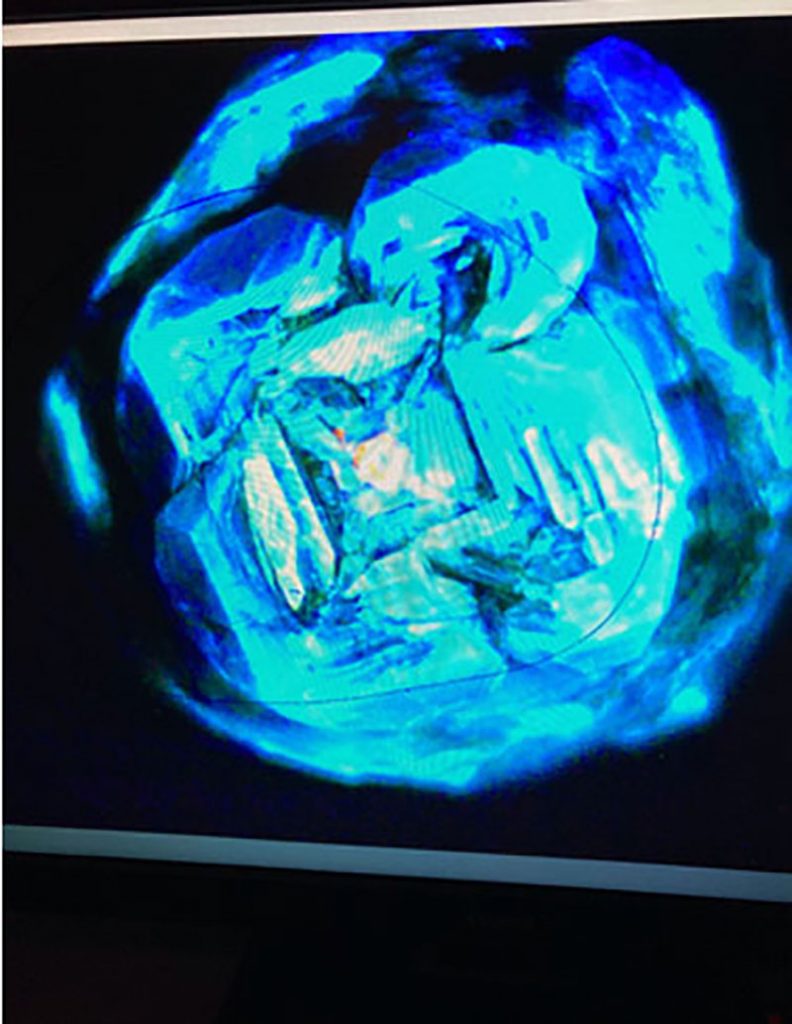The International Gemological Institute, the World’s largest independent laboratory for testing and grading gemstones and fine jewelry, with headquarters based in Antwerp, Belgium, announced on September 26, 2020, that in early September, they received two large HPHT-produced lab-grown black diamonds for analysis and grading. They further stated that one of those black diamonds had set the Guinness World Record for the largest black lab-grown diamond in history.

According to IGI, the two lab-grown diamonds were produced by UK-based Meylor Global, who had also previously produced the world’s largest polished HPHT Colorless lab-grown diamond, the largest polished HPHT yellow, lab-grown diamond and the largest polished HPHT blue lab-grown diamond. The two historic black Type IIb rough crystals weighed in at 109.58 carats and 115.65 carats with dimensions of 25.33 mm x 24.67 mm x 19.82 mm and 29.40 mm x 27.90 mm x 23.44 mm respectively.



Apart from gem-quality HPHT lab-grown diamonds, Meylor Global also produces diamond plates, anvils and lenses, which are used in optic, electronic, mechanical and quantum applications.
According to Meylor Global CEO Yuliya Kusher, the two record-breaking black diamonds were grown within the frameworks of the “World’s Largest Black Diamonds Project” initiated by his company in the beginning of the year 2020.
Commenting further on this project CEO Yuliya Kusher said, “the innovative approach in physical chemistry of diamond growth combined with sophisticated technological methods and advanced high pressure equipment allowed us to obtain record-breaking extra-large diamond single crystals, having in mind the idea of getting the biggest possible diamond plate in the one-inch plus size (25 x 25mm).”
“The semiconducting properties of our large type IIb diamond stones, specifically intended to produce the single sector diamond plates ((111) or 100) orientations, will greatly facilitate the development of diamond based electronics by boosting the related research with CVD methods diamond layers overgrowth.”
IGI analyses under visible spectroscopy and FTIR mid-infrared spectroscopy showed the two crystals were not subject to color enhancement and are the boron containing Type IIb (2b) diamond type.
Both crystals were subjected to standard long wave (366 nm) and short wave (254) ultraviolet light and found to be inert.

However, the seed crystal of the 115 carat stone showed an orange reaction in long wave ultraviolet light.

When exposed to high energy short wave ultraviolet light, they exhibited the standard reaction of HPHT grown diamonds. Very strong fluorescence (left) and phosphorescence (right).


According to Kusher, this record-setting achievement is just a step toward another goal.
“The significant milestone of 100ct+ size in diamond size was achieved by our company in a very short time and the next even more promising target of 200 ct+ is right now under deep scientific investigation,” she said.
